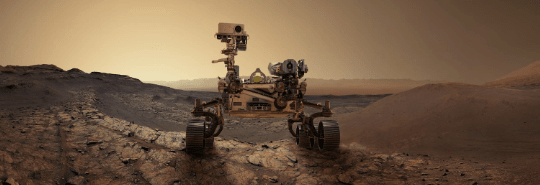The scientific column, Sammy in Science, has a special guest! While Sammy usually dives into quirky scientific questions, today’s guest will be discussing a serious topic: space ethics!
Let’s face it: us humans aren’t the best at being humane. From 19th century immigrant labor exploitation to modern-day environment pollution, any mere history book can question our ability to pragmatically approach something as significant as space settlement. This is visible even in classical fiction like The War of the Worlds, where H.G. Wells utilizes a sci-fi story to caution us on space colonization and morality. As technology is nearing the boundaries of space exploration with every blink of the eye, it is necessary that we take a step back and address the ethical concerns of what we are about to walk into.
Space ethics, a discipline led by James S. J. Schwartz and Tony Milligan in the 1980s, centers around the moral implications in space exploration. In simpler terms, space ethics defines what should or should not be done in the space field to prevent dangers to planets, humans, and the environment. This discipline only really came to attention following the explosion of the Apollo 1 command module that led to the death of three astronauts. In addition to concerns on human lives, space practitioners also worry about space pollution. Space debris from abandoned, crashed, and fragmented spacecraft has left over six thousand tons of materials polluting the space environment. Though there have been efforts to clean up the space debris through remediation programs and innovative technologies, these environmental consequences display the terrifying magnitude of human influence.
Preventative measures towards space pollution can be taken through universal space codes that are updated regularly to stay in line with modern events. Similar to how wars have been settled with treaties, our solar system can be protected through joint guidelines. Setting ethical standards that are mutually agreed on by space ethicists and the technical space community, such as engineers and practicing scientists, encourages a balance between the implementation of space protection and exploitation.
That is not to say that we should stop space exploration efforts: in fact, space discovery will contribute heavily to scientific knowledge and human success. Some may have a preconceived notion that those in support of space ethics hope to prevent space endeavors, but space ethics aren’t a limitation for groundbreaking discoveries: they are the epitome of it. Just like how deep divers can’t jump into the ocean without training and equipment, we can’t blindly wander in space without considering our societal and environmental responsibilities. By setting a strong and careful precedent of ethical space exploration, we not only contribute to sustainable and long-term space research, but also highlight what it means to be humane.
Citations:
https://www.sciencedirect.com/science/article/pii/S0265964602000644
https://www.politico.com/news/2020/11/20/space-ethics-opinion-438526
https://www.cigionline.org/articles/if-humanity-is-to-succeed-in-space-our-ethics-must-evolve/
https://www.sciencedirect.com/science/article/pii/S0265964602000644?via%3Dihub
https://www.nasa.gov/get-involved/nasa-seeks-solutions-to-detect-track-clean-up-small-space-debris/















